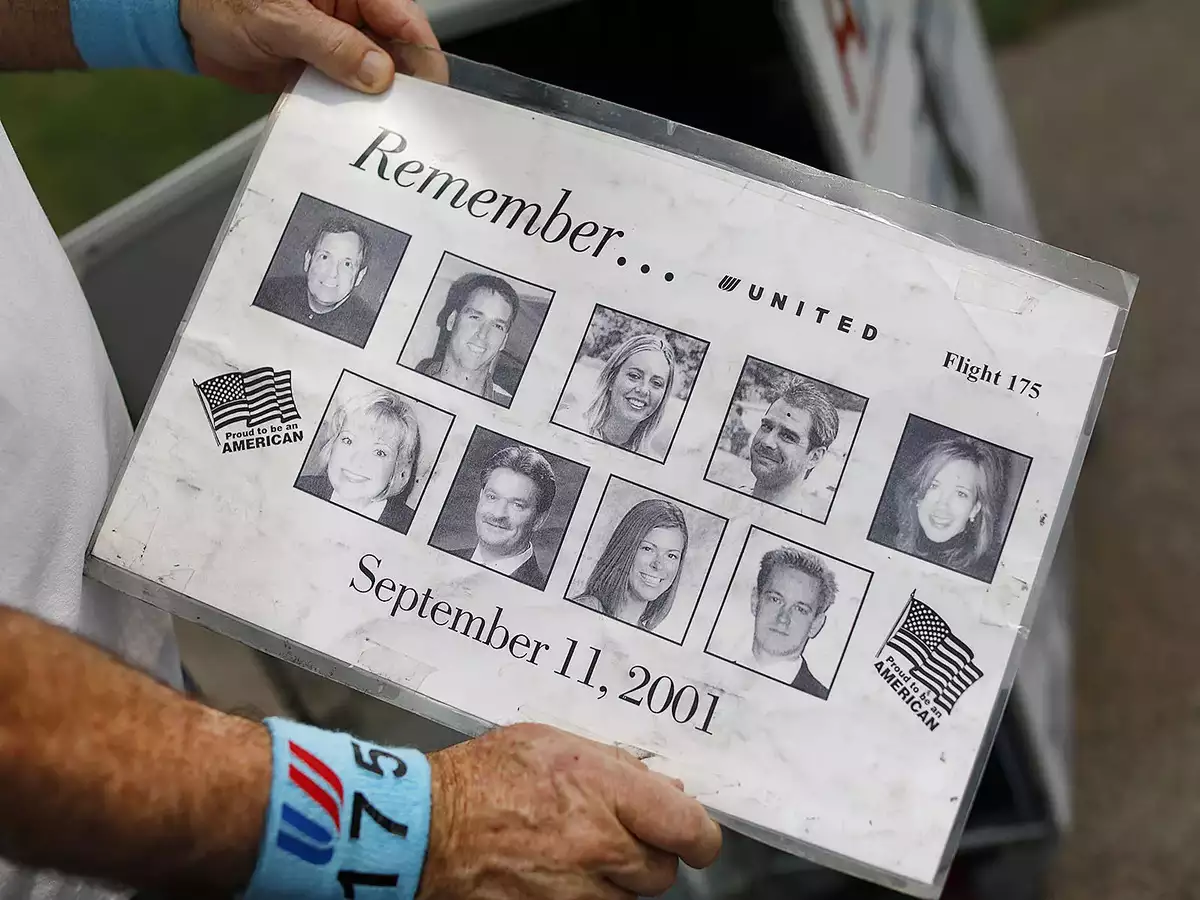
SHANKSVILLE, United States, Aug 24, 2021 (BSS/AFP) - Gordon Felt knows the old mining land in Pennsylvania where United Airlines Flight 93 crashed on September 11, 2001, by heart. He's been there about a hundred times since the attacks.
His brother Edward was on the plane that went down in wooded hills outside Shanksville after passengers stopped hijackers from crashing it into a target in the US capital Washington, 155 miles (250 kilometers) away.
Felt, a teacher specializing in educating children with disabilities, has become a spokesman for the families of the 40 passengers and crew who died that day -- "heroes" who averted an even greater tragedy.
The 57-year-old made it his mission to ensure that their memory was not eclipsed by the stories of the three other hijacked planes, which struck the World Trade Center and Pentagon.
Edward was a 41-year-old engineer with two daughters when he died.
Felt sees himself as a "facilitator" and "a communicator," while his brother was a "problem solver" and "more of the doer" among the siblings.
As president of the victims' families association, Felt was key in building the Flight 93 memorial, a roughly 2,200-acre (890-hectare) park that follows the plane's final trajectory to a white marble wall with 40 engraved names.
Felt and other families first stood on the site at the end of September 2001, when the Federal Bureau of Investigation took them there after barring access for two weeks while it carried out a probe.
They arrived by bus from a center set up by the Red Cross. On the journey through the countryside, locals stood at crossroads waving American flags in homage to them.
"That was really the first time that I think it hit a lot of us that this is really huge. This is much bigger than just the loss of a brother," Felt recalls.
- 'Horrific' -
Felt visited the site with his mother, Edward's wife and his other brother.
"We looked down on a crater with burned trees. It was wreckage, it was raw, it was horrific for us," he says.
Like the other families present, Gordon was asked to donate DNA samples to help identify the human remains found. All victims were eventually identified.
Before leaving, they were asked if anyone would speak to journalists waiting outside. Felt volunteered, taking on the role of spokesperson, which he has continued to this day.
On May 2, 2011, he was awakened to react on behalf of victims to the news that Osama bin Laden, who masterminded the attacks, had been killed in a US raid in Pakistan.
In September that year, he prevented photographers from following then-president Barack Obama to the precise spot where the plane crashed during the inauguration of the memorial.
It is considered "sacred ground," as only five percent of victims' remains were found. Only families of the dead can step on that spot.
To mark the 20th anniversary of 9/11 this year, Felt and those in charge of the memorial are planning a week of events. Felt is also preparing to dissolve the association.
The memorial was completed in 2019 with the installation of a tower with 40 wind chimes, symbols of the "voices" of the departed.
"We have reached our goal," says Felt, without regret.
On the contrary, he feels gratitude for his years of visits to Pennsylvania and to elected officials in Washington as he drove forward the memorial project.
- Trial -
"I was angry. There was a really black hole I could have fallen into. This process has given me perspective, it's given me hope, it has given me purpose.
"I chose not to be bitter," he says.
But the story is far from over. Much remains unknown about what occurred on Flight 93 in the 35 minutes between the start of the hijacking and the crash at 10:03 am.
Felt hopes the trial of accused plotters being held at the Guantanamo Bay prison will bring new information that can be included in the memorial's museum.
The trial has been postponed by the coronavirus pandemic and no date has yet been set.
Felt hopes to attend and see the suspects convicted, even if he has to travel from New Zealand, where his wife is from and where they are due to move later this year.
Even once he's settled thousands of miles away, he still plans to regularly visit Edward's final resting place.
"I will always come back. I feel very at home here," he says.